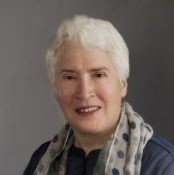
The Second Sunday in Ordinary Time
♦
The Third Sunday in Ordinary Time
Anne Morton
23 January 2019
The theme of this week’s Scripture readings is Scripture itself: Ezra’s reading of Torah to the people assembled before the rebuilt Temple, Luke’s brief account of how and why he wrote, followed by the episode of Jesus in the synagogue at Nazareth, reading from Isaiah. Luke’s gospel is the only one which includes this; Matthew and Mark tell us only that he taught. And there is also the praise of Torah in Psalm 19, a psalm which is recited on Shabbat mornings in the synagogue.
Only the epistle might seem to have no connection to the theme. Yet when Ezra and Jesus read, they were reading to the assembly of believers. We belong to this assembly; as Paul reminds us, we are “Christ’s body, and individually parts of it” [1 Cor 12:27]. So these readings, taken together, are an invitation to reflect on the public reading and hearing of Scripture. Centuries ago most people could not read or expect to have their own copy of Scripture. Today, reading Scripture in private is an important part of the devotional life of many Christians. So why do we need to hear it read aloud when we go to church?
The late Peter Gomes wrote that the Bible, like the bread and wine of Communion, is “the gift of God for the people of God. [Gomes, 18]” He continued:
It is a very public record of the relationship between these people and their God, meant to be heard, understood, and remembered. When we realize the oral origin of scripture, and the fact that in the days before general literacy the only way people became acquainted with the Bible was to hear it in the company of others, read aloud by one who could do so, then we realize that like the ancient tales of Homer and the histories of Greece and Rome, these were public stories that communicated public truths in the most public of ways…. The public nature of the Bible is meant to have an impact upon public life….it is not a secret or private vocation but a public proclamation of what can be discerned of God’s intentions for the creation from the witness and testimony of scripture. People should not be surprised, therefore, that Christians always want to translate their understanding of scripture and its demands into the public lives that Christians lead. The Bible is meant to play a role in society, as are Christians.
In this week’s readings, we see the Bible playing a role in society. In the passage from Nehemiah, after hearing the reading of Torah, those who have food and drink share them with those who have none. On finishing his reading from Isaiah, Jesus emphasizes that the words of the prophet are not just about a time long past but about the here and now: “Today this Scripture passage is fulfilled in your hearing.”
Nowadays, there are Christians who employ the option of reading the Scripture passages even as they are being read out loud— “their noses in their missals” (as I once heard a priest put it). Some, of course, may have hearing difficulties. For those who do not, looking down at a printed text is an isolating action, whereas looking at the reader, where everybody else is looking, and hearing what everybody else is hearing, binds one to the community. And the spoken word can reach the heart in a way that the written word cannot—remember that “all the people were weeping as they heard the words of the law.” [Neh 8:9]
For Reflection and Discussion: [1] What is your practice in church? Do you read or listen? [2] Jesus said, “My mother and my brothers are those who hear the word of God and do it. [Lk 8:21]” How and when has hearing God’s word inspired you to action?
Bibliography: Gomes, The Good Book: Reading the Bible with Mind and Heart (New York, 1996)

This week’s teaching commentary was prepared by
Mary Louise Chesley-Cora, MAT in Religious Studies,
Hockessin DE USA.
Bat Kol Alumna 2001
PLEASE NOTE: The weekly Parashah commentaries represent the research and creative thought of their authors, and are meant to stimulate deeper thinking about the meaning of the Scriptures. While they draw upon the study methods and sources employed by the ISPS-Ratisbonne, the views and conclusions expressed in these commentaries are solely those of their authors, and do not necessarily represent the views of ISPS-Ratisbonne. The commentaries, along with all materials published on the ISPS-Ratisbonne website, are copyrighted by the writers, and are made available for personal and group study, and local church purposes. Permission needed for other purposes. Questions, comments and feedback are always welcome.
Share this with your friends
Institute Saint Pierre de Sion – Ratisbonne – Christian Center for Jewish Studies
Congregation of the Religious of Our Lady of Sion
Contact us:
secretary@ratisbonne.org.il
26 Shmuel Ha-Naguid Street – Jerusalem
Subscribe to Newsletter

No responses yet